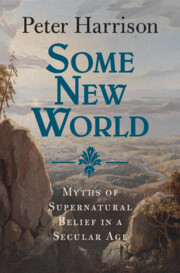3 - Inventing Epistemology
Published online by Cambridge University Press: 29 March 2024
Summary
This chapter describes how, during the sixteenth century, implicit faith became one of the chief targets of the Protestant reformers, who insisted that individuals take full responsibility for what they believed. True belief was thought to entail explicit knowledge of what was being assented to, along with some capacity to justify that belief in a way that did not simply defer to authority. Critiques of implicit faith represent the first articulation of what is now referred to as the ‘ethics of belief’—the principle that we have an ethical duty to have evidence for the beliefs we hold. As a consequence, belief came to be thought of more in terms of intellectual assent than affective trust. These early modern changes to the sociology and philosophy of religious belief contributed to the subsequent epistemological preoccupations of modern philosophy.
Keywords
- Type
- Chapter
- Information
- Some New WorldMyths of Supernatural Belief in a Secular Age, pp. 68 - 129Publisher: Cambridge University PressPrint publication year: 2024

